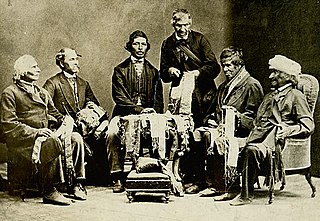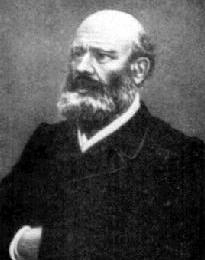Libertarian socialism, also known by various other names, is a left-wing, anti-authoritarian, anti-statist and libertarian political philosophy within the socialist movement which rejects the state's control of the economy under state socialism. Overlapping with anarchism and libertarianism, libertarian socialists criticize wage slavery relationships within the workplace, emphasizing workers' self-management and decentralized structures of political organization. As a broad socialist tradition and movement, libertarian socialism includes anarchist, Marxist, and anarchist- or Marxist-inspired thought and other left-libertarian tendencies.

Left-wing politics describes the range of political ideologies that support and seek to achieve social equality and egalitarianism, often in opposition to social hierarchy. Left-wing politics typically involve a concern for those in society whom its adherents perceive as disadvantaged relative to others as well as a belief that there are unjustified inequalities that need to be reduced or abolished. According to emeritus professor of economics Barry Clark, supporters of left-wing politics "claim that human development flourishes when individuals engage in cooperative, mutually respectful relations that can thrive only when excessive differences in status, power, and wealth are eliminated."
Socialism is a political philosophy and movement encompassing a range of economic and social systems, which are characterised by social ownership of the means of production, as opposed to private ownership. As a term, it describes the economic, political, and social theories and movements associated with the implementation of such systems. Social ownership can be public, community, collective, cooperative, or employee. While no single definition encapsulates the many types of socialism, social ownership is the one common element, and is considered left-wing. Different types of socialism vary based on the role of markets and planning in resource allocation, on the structure of management in organizations, and from below or from above approaches, with some socialists favouring a party, state, or technocratic-driven approach. Socialists disagree on whether government, particularly existing government, is the correct vehicle for change.
The history of communism encompasses a wide variety of ideologies and political movements sharing the core theoretical values of common ownership of wealth, economic enterprise, and property. Most modern forms of communism are grounded at least nominally in Marxism, a theory and method conceived by Karl Marx during the 19th century. Marxism subsequently gained a widespread following across much of Europe and throughout the late 1800s its militant supporters were instrumental in a number of failed revolutions on that continent. During the same era, there was also a proliferation of communist parties which rejected armed revolution, but embraced the Marxist ideal of collective property and a classless society.
Religious socialism is a type of socialism based on religious values. Members of several major religions have found that their beliefs about human society fit with socialist principles and ideas. As a result, religious socialist movements have developed within these religions. Those movements include Buddhist socialism, Christian socialism, Islamic socialism, and Jewish socialism. According to the Encyclopedia Britannica Online, socialism is a "social and economic doctrine that calls for public rather than private ownership or control of property and natural resources. According to the socialist view, individuals do not live or work in isolation but live in cooperation with one another. Furthermore, everything that people produce is in some sense a social product, and everyone who contributes to the production of a good is entitled to a share in it. Society as a whole, therefore, should own or at least control property for the benefit of all its members. [...] Early Christian communities also practiced the sharing of goods and labour, a simple form of socialism subsequently followed in certain forms of monasticism. Several monastic orders continue these practices today".
New Democracy, or the New Democratic Revolution, is a concept based on Mao Zedong's Bloc of Four Social Classes theory in post-revolutionary China which argued originally that democracy in China would take a path that was decisively distinct from that in any other country. He also said every colonial or semi-colonial country would have its own unique path to democracy, given that particular country's own social and material conditions. Mao labeled representative democracy in the Western nations as Old Democracy, characterizing parliamentarianism as just an instrument to promote the dictatorship of the bourgeoisie/land-owning class through manufacturing consent. He also found his concept of New Democracy in contrast with the Soviet-style dictatorship of the proletariat which he assumed would be the dominant political structure of a post-capitalist world. Mao spoke about how he wanted to create a New China, a country freed from the feudal and semi-feudal aspects of its old culture as well as Japanese imperialism.
Anarchism in China was a strong intellectual force in the reform and revolutionary movements in the early 20th century. In the years before and just after the overthrow of the Qing dynasty Chinese anarchists insisted that a true revolution could not be political, replacing one government with another, but had to overthrow traditional culture and create new social practices, especially in the family. "Anarchism" was translated into Chinese as 無政府主義 literally, "the doctrine of no government."
Communism is a left-wing to far-left sociopolitical, philosophical, and economic ideology within the socialist movement, whose goal is the establishment of a communist society, a socioeconomic order centered around common ownership of the means of production, distribution, and exchange that allocates products to everyone in the society. Communist society also involves the absence of private property, social classes, money, and the state. Communists often seek a voluntary state of self-governance but disagree on the means to this end. This reflects a distinction between a more libertarian approach of communization, revolutionary spontaneity, and workers' self-management, and a more vanguardist or Communist party-driven approach through the development of a constitutional socialist state followed by the withering away of the state. As one of the main ideologies on the political spectrum, communism is placed on the left-wing alongside socialism, and communist parties and movements have been described as radical left or far left.

While Karl Marx and Friedrich Engels defined communism as a political movement, there were already similar ideas in the past which one could call communist experiments. Marx himself saw primitive communism as the original hunter-gatherer state of humankind. Marx theorized that only after humanity was capable of producing surplus did private property develop.

Marxism is a method of socioeconomic analysis that originates in the works of 19th century German philosophers Karl Marx and Friedrich Engels. Marxism analyzes and critiques the development of class society and especially of capitalism as well as the role of class struggles in systemic, economic, social and political change. It frames capitalism through a paradigm of exploitation and analyzes class relations and social conflict using a materialist interpretation of historical development – materialist in the sense that the politics and ideas of an epoch are determined by the way in which material production is carried on.

Jean-Jacques Pillot was a French revolutionary and republican communist. He participated in the Revolution of 1848 and in the Paris Commune of 1871.
Types of socialism include a range of economic and social systems characterised by social ownership and democratic control of the means of production and organizational self-management of enterprises as well as the political theories and movements associated with socialism. Social ownership may refer to forms of public, collective or cooperative ownership, or to citizen ownership of equity in which surplus value goes to the working class and hence society as a whole. There are many varieties of socialism and no single definition encapsulates all of them, but social ownership is the common element shared by its various forms. Socialists disagree about the degree to which social control or regulation of the economy is necessary, how far society should intervene, and whether government, particularly existing government, is the correct vehicle for change.

Classical Marxism refers to the economic, philosophical, and sociological theories expounded by Karl Marx and Friedrich Engels as contrasted with later developments in Marxism, especially Marxism–Leninism.
Revolutionary socialism is a political philosophy, doctrine, and tradition within socialism that stresses the idea that a social revolution is necessary to bring about structural changes in society. More specifically, it is the view that revolution is a necessary precondition for transitioning from a capitalist to a socialist mode of production. Revolution is not necessarily defined as a violent insurrection; it is defined as a seizure of political power by mass movements of the working class so that the state is directly controlled or abolished by the working class as opposed to the capitalist class and its interests.

World revolution is the Marxist concept of overthrowing capitalism in all countries through the conscious revolutionary action of the organized working class. For theorists, these revolutions will not necessarily occur simultaneously, but where and when local conditions allow a revolutionary party to successfully replace bourgeois ownership and rule, and install a workers' state based on social ownership of the means of production. In most Marxist schools, such as Trotskyism and Communist Left, the essentially international character of the class struggle and the necessity of global scope are critical elements and a chief explanation of the failure of socialism in one country.
A socialist state, socialist republic, or socialist country, sometimes referred to as a workers' state or workers' republic, is a sovereign state constitutionally dedicated to the establishment of socialism. The term communist state is often used synonymously in the West specifically when referring to one-party socialist states governed by Marxist–Leninist communist parties, despite these countries being officially socialist states in the process of building socialism and progressing toward a communist society. These countries never describe themselves as communist nor as having implemented a communist society. Additionally, a number of countries that are multi-party capitalist states make references to socialism in their constitutions, in most cases alluding to the building of a socialist society, naming socialism, claiming to be a socialist state, or including the term people's republic or socialist republic in their country's full name, although this does not necessarily reflect the structure and development paths of these countries' political and economic systems. Currently, these countries include Algeria, Bangladesh, Guyana, India, Nepal, Nicaragua, Sri Lanka and Tanzania.

Utopian socialism is the term often used to describe the first current of modern socialism and socialist thought as exemplified by the work of Henri de Saint-Simon, Charles Fourier, Étienne Cabet, and Robert Owen. Utopian socialism is often described as the presentation of visions and outlines for imaginary or futuristic ideal societies, with positive ideals being the main reason for moving society in such a direction. Later socialists and critics of utopian socialism viewed utopian socialism as not being grounded in actual material conditions of existing society. These visions of ideal societies competed with revolutionary and social democratic movements.
The history of socialism has its origins in the Age of Enlightenment and the 1789 French Revolution along with the changes that it brought, although it has precedents in earlier movements and ideas. The Communist Manifesto was written by Karl Marx and Friedrich Engels in 1847-48 just before the Revolutions of 1848 swept Europe, expressing what they termed scientific socialism. In the last third of the 19th century parties dedicated to Democratic socialism arose in Europe, drawing mainly from Marxism. The Australian Labor Party was the world's first elected socialist party when it formed government in the Colony of Queensland for a week in 1899.

Terrorism and Communism: A Reply to Karl Kautsky is a book by Soviet Communist Party leader Leon Trotsky. First published in German in August 1920, the short book was written against a criticism of the Russian Revolution, Dictatorship of the Proletariat, published the previous year in Vienna, Austria by prominent Marxist Karl Kautsky.
Communism has been a part of French politics since the early 20th century at the latest. It has been described as "an enduring presence on the French political scene" for most of the 20th century.






